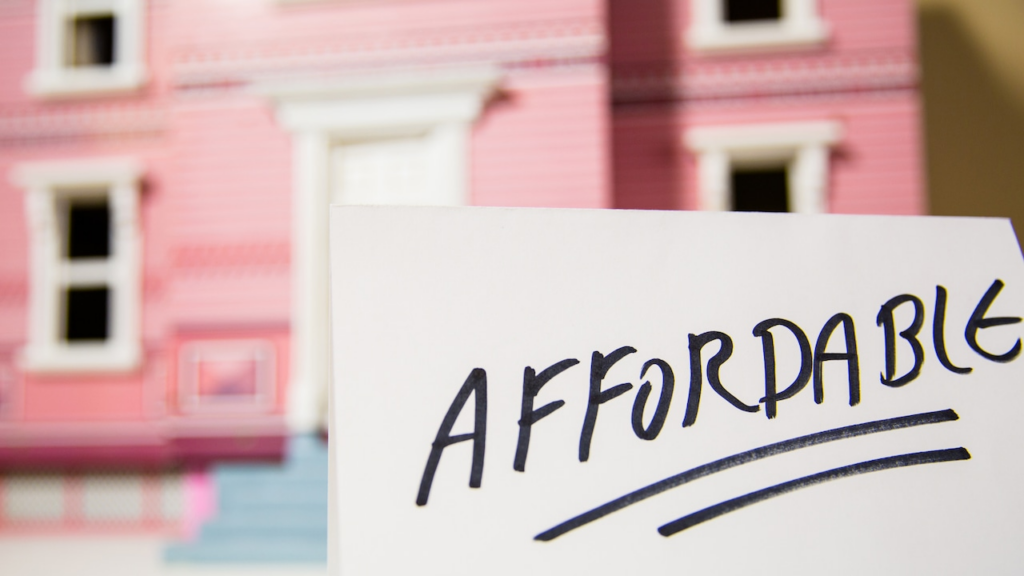By Lazaro Cardenas and Frank Argote-Freyre
As one of the most expensive real estate markets in the U.S., New Jersey faces a severe shortage of affordable homes — over 200,000 units short, with 14 prospective renters vying for each vacancy. The human impacts of this crisis are profound, especially for Latino families, who experience housing instability at disproportionate rates due to the lingering effects of historical discrimination and residential segregation.
For many Latino parents, the housing crisis isn’t just about affordability – it’s about ensuring their children have stable homes where they can grow and thrive. Housing insecurity disrupts education, health, and family cohesion, compounding systemic inequities that already affect communities of color. Addressing the housing crisis, therefore, is not only an economic and logistical challenge. It is also a critical issue of racial and social justice.
Thankfully, New Jersey has one of the strongest affordable housing frameworks in the country: the Mount Laurel Doctrine. Established through a series of state Supreme Court decisions beginning in 1975, this policy framework requires municipalities to allow their fair share of affordable housing. Over the decades, the Mount Laurel Doctrine has been a lifeline for working families, particularly for Latino and Black households that have historically been excluded from suburban neighborhoods.
Despite persistent efforts by affluent towns to evade their responsibilities and perpetuate segregation, New Jersey’s municipalities have made significant progress. Since the New Jersey Supreme Court re-invigorated enforcement in 2015, affordable housing production has doubled, resulting in over 20,000 new homes in the past decade. These homes have provided critical stability for families and opened pathways to opportunity — but we still have a long way to go.
This year, New Jersey built on this progress by enacting a landmark law to strengthen the Mount Laurel Doctrine and increase affordable housing production statewide over the next decade.
Historically, the Mount Laurel Doctrine was primarily driven by the courts. But now that Gov. Murphy and legislative leaders — such as Speaker Craig Coughlin, Senate President Nicholas Scutari, Senate Majority Leader Teresa Ruiz, Assemblywoman Yvonne Lopez, and Sen. Troy Singleton — have embraced the Mount Laurel Doctrine with this new law, it shows how the politics of affordable housing are shifting.
The new law streamlines the development process, reduces municipal costs, and equips towns with a variety of tools to meet their housing obligations. These tools include financing options, zoning incentives, and credits that enable municipalities to design housing plans tailored to their needs.
For Latino families, these developments are transformative. Affordable housing in integrated communities has been shown to improve health outcomes, boost wages, and increase college attendance rates among residents. Children raised in such environments often break cycles of poverty, achieving better educational and economic outcomes than their peers in under-resourced areas.
The benefits extend far beyond those living in affordable developments. Communities like South Orange and Woodbridge, which have embraced affordable housing, are thriving economically. These towns boast great public schools, strong property values, and low crime rates, with residents of diverse backgrounds participating in civic life and leadership.
Conversely, towns that resist affordable housing not only perpetuate inequality but also miss out on the broader benefits it brings. Housing shortages harm everyone by restricting labor mobility, stifling economic growth, and undermining social cohesion. In contrast, municipalities that embrace inclusive development find themselves better positioned to attract businesses, retain residents, and build more resilient communities.
New Jersey is at a critical juncture. With income inequality rising and housing costs soaring, our municipal leaders must double down on their commitment to affordable housing. While the new law is a step in the right direction, much more remains to be done.
Municipalities must take full advantage of the resources and incentives available, proactively zoning for affordable developments and collaborating with developers to create housing for seniors, veterans, people with disabilities, and domestic violence survivors.
Housing is the foundation of opportunity. For Latino families and all New Jerseyans, it represents stability, hope, and a chance to thrive. The roof over our heads defines so much about our lives — where our children go to school, where we work, and the communities we build.
Local leaders across our state have a moral and practical obligation to support the affordable housing development process. By breaking down barriers of racial and economic exclusion, we can create a New Jersey where every family has the opportunity to succeed, no matter their background or income.
Affordable housing isn’t just about meeting legal obligations; it’s about building a stronger, more inclusive future for all.
Lazaro Cardenas is Deputy Director of the Latino Coalition of NJ and a managing partner at Patel & Cardenas, LLC. Frank Argote-Freyre is Director of the Latino Coalition of NJ and Professor of Latin American History at Kean University.

